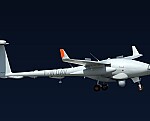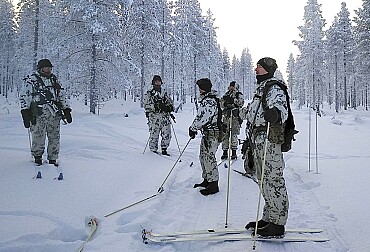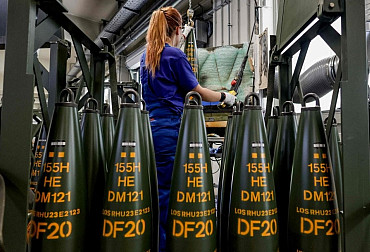Weapons and ammunition supplies are dwindling in the West. Will the Hamas invasion of Israel affect supplies to Ukraine?
While the Ukrainian defenders are struggling to regain the occupied areas, the eyes of the world have turned once again to the Middle East. And according to Western experts, there is no doubt who is most happy about the current situation - Moscow. The attention of Western states, led by the US, has been diluted, at least for a time, and analysts warn that further aid to Ukraine may be similarly diluted. As a NATO ally, Israel is asking for billions of dollars in military aid. Emergency supplies of arms and humanitarian aid have already been included in the national security package by Joe Biden's cabinet at a cost of almost two and a half trillion.

"American attention is going to be a bit more scattered and there is a general fatigue in both the US and Europe about aid to Ukraine," Natasha Lindsteadt, a professor of political science at the University of Essex, told Euronews, putting the US divisions in domestic politics into direct perspective. "Republicans, especially their more radical right wing, no longer want to help Ukraine. If they get a majority in the House and Senate, and if Donald Trump wins the presidential election, the Ukrainians will be in real trouble," Lindsteadt believes. More aid must pass Congress, which refused to add such a line item to the budget before impeaching President Kevin McCarthy, among other things, because of aid to Ukraine.
Concerns have already been partly voiced by Ukrainian President Volodymyr Zelensky, who in recent weeks has sought to reassure support among allies. For the first time since the Russian invasion began, he arrived at NATO headquarters in Brussels, and shortly afterwards spoke by phone with his American counterpart, with both presidents stating firmly after the conversation that aid to Ukraine is far from over. Washington is confident that it can handle support in both wars. "We've had 16 meetings of the Ukraine Defense Contact Group so far, and the Ukrainians have come away from every single one of them with another approved form of assistance. Not that it's always been easy," U.S. Ambassador to NATO Julianne Smith described to NPR's All Things Considered radio program, adding that "Washington will nonetheless manage to uphold its commitments and friendship to Israel while supporting Kiev."
Russia is satisfied
Just days before the brutal Islamist invasion of Israel from the Gaza Strip came a chilling warning from a top NATO official. "We have started giving arms and ammunition to Ukraine, which is great, but unfortunately not from full stockpiles. We were giving them from half-empty or even less full European warehouses," Admiral Rob Bauer, chairman of the alliance's military committee, warned at the Warsaw Security Conference in early October. "The United States and its allies are sending large quantities of weapons to Ukraine but are not producing them themselves or delivering them as quickly as they should," analyst Thomas Warrick wrote for the Atlantic Council.
The Russians are satisfied with the situation. It turns out that there is a neglect of military production in Europe and the limits of North Atlantic Treaty Organisation armies, but the polarisation of the world and the continent has also led to mass riots right in the heart of European capitals, where radical supporters of Palestine have often come out. Representatives of both Hamas and Palestinian Islamic Jihad maintain close contact with Moscow and, as one of Russia's last few allies, visited the Kremlin several times before the invasion. "Hamas and Putin symbolize different threats, but they have one thing in common: they both want to completely eradicate a neighboring democracy," Joe Biden said in his latest address to the nation from the Oval Office. "Our alliances are what keep us, America, safe. America's values are what make us a partner that other nations want to work with. For us to jeopardize all of that if we walk away from Ukraine and turn our backs on Israel is just not worth it."
The Russians are even trying to spin the entire narrative on their propaganda channels, using fake videos to spread disinformation that Hamas is getting weapons from Ukraine. The pro-Kremlin activists even try to illustrate this with a fake video pretending to be an authentic BBC report with information from journalists from the investigative group Bellingcat. However, this is a pure lie, as OSINT sources have revealed on social media and as Bellingcat itself confirmed in its statement. Yet similar false claims are being spread en masse on the networks, even though it is the Russians who are openly supporting the Islamists.
"The world cannot afford to let the Russians win. If we stop helping Ukraine, who knows what will happen next? Russia is quite clear that it wants to expand its sphere of influence. It has a history of invading other countries, especially when Putin enjoys particularly strong support among the population. Given Russia's proximity to Europe's doorstep, I think there must still be a real concern that Russia will continue to violate the rights of European countries, either directly or indirectly," concludes political analyst Natasha Lindsteadt for Euronews. And even if Vladimir Putin cannot claim major military successes in Ukraine, Washington and Brussels are busy with his hybrid war.










